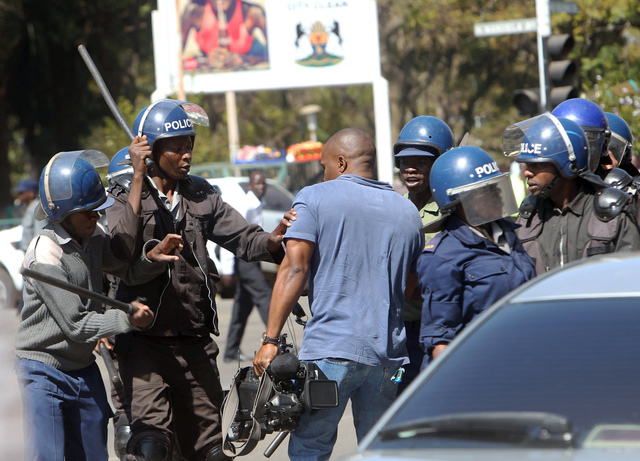Media violations shot up in 2018 as more journalists in Zimbabwe were assaulted than the previous year and several of these occurred during the election and post-election period, a media watchdog has said.
2018 also passed without the envisaged media law and policy reforms such as the Access to Information and Protection of Privacy Act (AIPPA), Broadcasting Services Act (BSA), which need to be reviewed and aligned to the 2013 constitution.
According to the 2018 MISA-Zimbabwe State of the Media Report, these violations occurred when the country was beginning to experience a steady decline in the number of media freedom violations.
“For instance, a total of seven journalists were unlawfully arrested or detained in 2017 compared to 23 journalists the previous year. This marked a decline of almost 70 percent (69.5 percent).
“In 2017, MISA-Zimbabwe recorded the specific assault of eight journalists during the course of their duties compared to the 12 recorded in 2016. Then, the majority of the cases of assault of journalists on duty were perpetrated by the police,” reads the report.
However, the situation deteriorated in 2018.
“During the period under review, there was an upsurge in the number of media violations recorded through the issuance of 31 Alerts compared to 11 in 2017, marking an increase of 182 percent. A total of 14 journalists were assaulted compared to eight in 2017, an increase of 86 percent,” said the media watchdog.
Misa also noted that no journalist was arrested, detained or assaulted by the police in the first six months of 2018, during the election period and more-so during the election-related demonstrations that rocked Harare on August 1 2018.
“However, a member of the riot police shoved one foreign journalist Joseph Cotterill, with a rifle butt when the police put up a blockade at an MDC Alliance election-related press conference at a Harare hotel on August 3, 2018.
The other three cases involved the assault of journalists by the military during the violent demonstrations in Harare on 1 August 2018,” reads the report.
But, this changed during the post-election period in September.
“For instance, freelance journalist Columbus Mavhunga, was detained for close to three hours during a police crackdown on vendors in Harare on 16 September 2018. Mavhunga was detained after he refused to delete footage he had recorded of the police arresting vendors in the Central Business District.
“He endured a three-hour ordeal as the police officers drove around with him while they continued with their arrests of vendors. Mavhunga was only released after interventions by national police spokesperson, Senior Assistant Commissioner Charity Charamba.”
On September 21, 2018, police briefly detained Pauline Chateuka for filming police officers as they arrested vendors around the Copacabana bus terminus in Harare.
“Police detained Chateuka despite the fact that she was visibly wearing her press card. According to Chateuka, once police officers noticed that she was using a video camera to record the events, one officer ran up to her and pushed her into a nearby police lorry with his rifle butt. She was released an estimated 10 minutes later with no charges laid against her.
“In the meantime, Chateuka had been separated from her colleague Joseph Andras. Andras was accosted by riot police who demanded the deletion of footage from his cellphone. He refused to delete the footage arguing that he was a duly accredited journalist. Chateuka and Andras are reporters with Community Radio Harare, a local community radio initiative.
MISA reported that in a similar incident, police officers briefly detained former NewZimbabwe.com editor Gilbert Nyambavhu on September 19, 2018.
Nyambavhu was taking pictures of the police during their raid on vendors in Harare. He was detained in the company of his colleague Idah Mhetu.
MISA-Zimbabwe argued that more still needs to be done to make sure journalists conduct their lawful professional duties without hindrance as the profession is critical for them to inform citizens.
“We, therefore, expects the Ministry of Information, Publicity and Broadcasting Services to honour its commitments and stick to timelines to guarantee speedy alignment of these contentious laws.
“The proposed Bills should also be subjected to public hearings to secure further input from the citizens as is provided for and required by the constitution. The government has a constitutional obligation to promote participatory democracy in Zimbabwe hence the need to make sure the Bills are explained to the public,” urged the watch dog.

